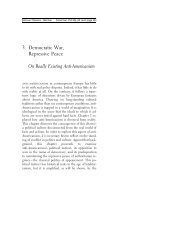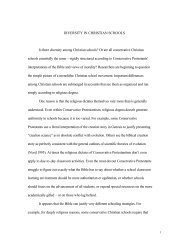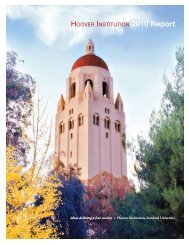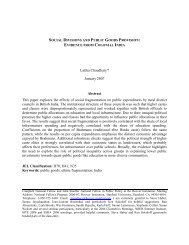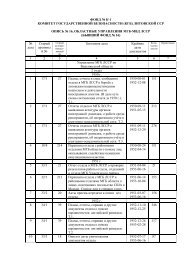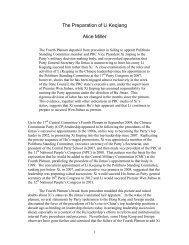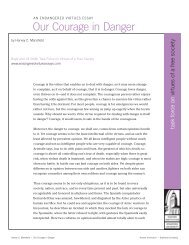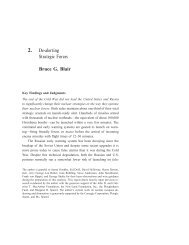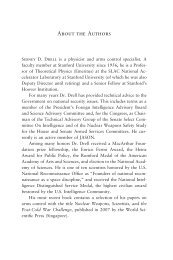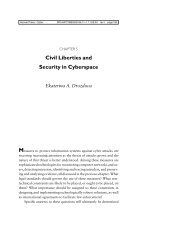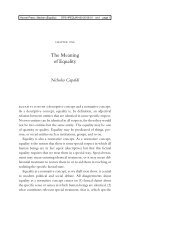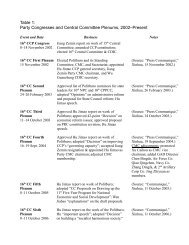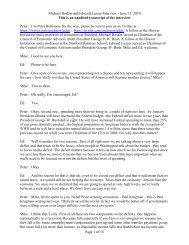A New Clandestine Service: The Case for ... - Hoover Institution
A New Clandestine Service: The Case for ... - Hoover Institution
A New Clandestine Service: The Case for ... - Hoover Institution
Create successful ePaper yourself
Turn your PDF publications into a flip-book with our unique Google optimized e-Paper software.
<strong>Hoover</strong> Press : Berkowitz/Intelligence hberai ch4 Mp_111_rev1_page 111<br />
A <strong>New</strong> <strong>Clandestine</strong> <strong>Service</strong><br />
111<br />
operations, at a time in the 1980s and 1990s when Iranian operations<br />
often had the limelight inside the service, I’m hard-pressed<br />
to recall a single espionage operation that was shaped by a CIA<br />
director.<br />
Serious historical reviews of clandestine intelligence collection<br />
against the Soviets, Chinese, Iraqis, Iranians, Egyptians, Cubans,<br />
French, or Congolese might make insiders and outsiders wiser<br />
about the nature of the CIA and keep White House and congressional<br />
officials from heaping praise on past or present agency work<br />
that does not merit it. As a <strong>for</strong>mer case officer, I can say that such<br />
praise was very dispiriting to officers—particularly during the<br />
1980s and early 1990s, when egregious operational failures<br />
occurred regularly. What such officers wanted was outsiders to<br />
reprove the organization <strong>for</strong> its incompetence. That way our elected<br />
representatives might be less inclined to throw even more money<br />
at Langley each time it cocks up. Even if congresspeople or deputy<br />
national security advisers did not read these reviews—and these<br />
folks don’t have much reading time—the critiques would still bubble<br />
through the bureaucracy and the press, engendering more healthy<br />
skepticism and humility.<br />
But my objective here is different. I bring up the deficiencies of<br />
the past only to underscore the most urgent problems that now face<br />
us in constructing a CIA that has as its primary target Islamic<br />
extremist groups. Langley properly has a larger role than this—and<br />
I will discuss that role below—but a CIA that tries to reconstruct<br />
itself to battle al Qaeda and other Islamic militant organizations will<br />
surely become a better intelligence service against the Chinese,<br />
North Koreans, or Russians. As is the case with infectious disease<br />
doctors fighting AIDS, agency operatives building a <strong>Clandestine</strong> <strong>Service</strong><br />
capable of penetrating Islamic radical groups are learning skills<br />
and operational truths applicable to any hard target. And if the<br />
<strong>Clandestine</strong> <strong>Service</strong> cannot wage intelligent ef<strong>for</strong>ts against hard tar-



